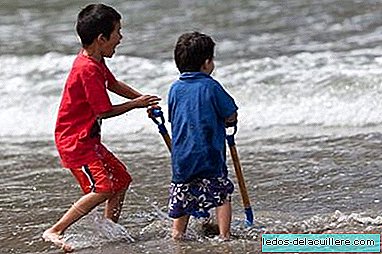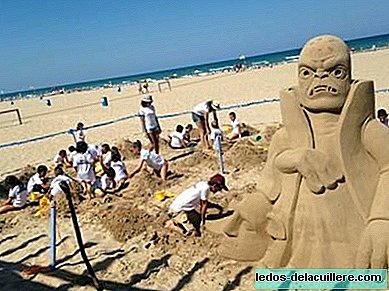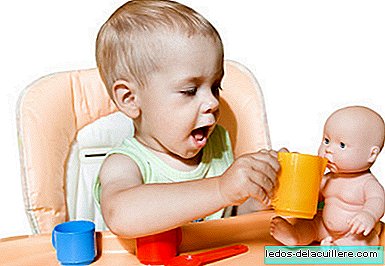
A child learns most things by imitating what others do. If you want me to learn to do something, it is best to show it to you. It is what we are better prepared to imitate. We have been doing it for thousands of years, so we have survived all this time.
Some investigate the new, try it and once it is safe we imitate it. It is the basic process that has been repeated in society since the beginning of time. It is the power of imitation.
Is it good to imitate?
As long as we don't imitate big brands or a serial killer I would say yes.
Imitating We lose the fear of the unknown. We are no longer the only ones who have faced it, someone did it before and our brain supposes that he thinks that if he has survived it is because it will be safe, more or less.
It makes our life easier. Imitating what another has already done saves us energy that we can use in other things, for example trying new things for someone to imitate us. But like everything else, if it is in excess it can become harmful and end up being a copy or byproduct of others.
We imitate, but not all are worth
When we say that our children copy everything they see, it is not really so, but they are very clear about which models they are sure to imitate. If we go to the countryside with our children and see a person who knows nothing about working in the field, and we stay long enough we can see how our children imitate the behavior they see, although very cautiously. However, if whoever was working was your grandfather, or an uncle, someone you trust would take much less time to decide.
When our children use phrases made, or a certain tone for a phrase, or even a taco it is almost certain that they have learned it from someone in their environment. Let's not blame TV or to the people on the terrace where we had a juice before, none of that, most likely he has heard it at home.
Brothers
For the little one at home there is a main figure to imitate, his older brother, and in the background the rest of us. If his brother is thirsty, he is thirsty, if his brother wants a toy he wants the same, if his brother sits he will sit too (and most of the time on top of his brother).
We say that now the older one has an echo, because the phrase released by the older one is repeated two seconds later by the little one. And I have to admit that that brings a lot of quite funny situations, in the sense of how the little one understands that things are pronounced.
But it would be more logical for him to imitate his parents, right? No. We are also a role model, but we are not his equal, we are big, we have a lot of hair and a powerful voice, but we are not one of them. We are your protectors, whom you will go to when you need help, but to know how things work the best is your older brother. It is always much better to learn how your brother uses the sofa in the living room than his boring parents who only use it for sitting.
The same, although to a lesser extent it happens with his classmates. Milestones such as removing the diaper or the pacifier are often conditioned by what your racing partners do. How many parents has happened to us that our son and the one who is supposed to be in kindergarten look like two different children?
Should we teach him what he should imitate?
A child will imitate everything that seems funny at that time or that will report some benefit. That is why we see them copying those behaviors that make us pay more time and attention. But there will be times that they will not be able to distinguish between a deplorable and a passable behavior (I don't even say it right anymore).
As I said before, I think it is good that they always have something of their own harvest and take advantage of the power of imitation to get the necessary knowledge to make their own way. And as the saying goes: Better mouse head than lion's tail.












